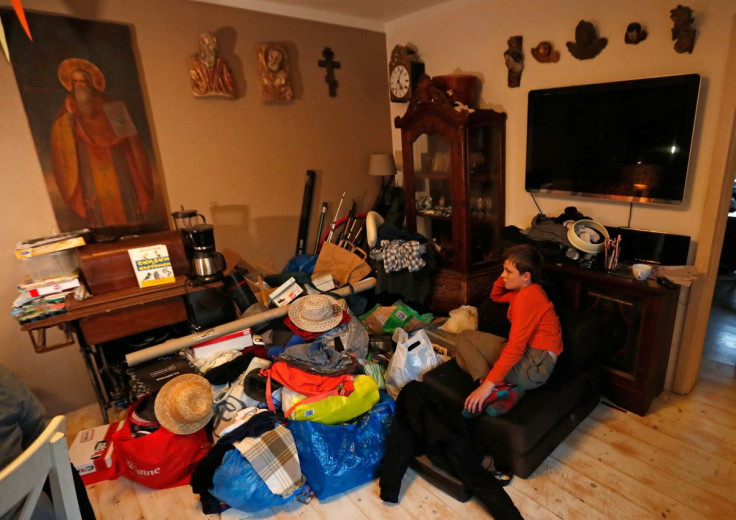Ukrainian Family Finds Refuge In Prague's Russian Community

A month after fleeing her home in central Ukraine with her three sons, Yulia Sarycheva is sharing a pot of tea with a pair of artists who are putting them up in their home in an old Prague suburb.
The fact their hosts Peter Bankov and his wife Yulia Fedulova are Russians makes no difference to the 41-year-old from the city of Dnipro.
"I understand this is a political situation. It does not apply to people," Sarycheva said.
Sarycheva and her sons are among the 4.2 million people estimated by the United Nations to have fled Ukraine since Russia launched its invasion on Feb. 24.
The majority have gone to Poland but around 300,000 Ukrainian refugees have arrived in the Czech Republic, another Slavic-speaking nation home to sizeable Ukrainian and Russian communities.
Bankov, 52, said it felt natural to help partly because his mother's Jewish family was once uprooted too, only in their case by Nazi Germany. "Many years ago my family were like refugees," he said.
Around 45,000 Russians live in the Czech Republic, according to the Interior Ministry, and among them Bankov and Fedulova are not alone in supporting Ukrainians.
On March 26, thousands of people took part in a march organised by Russians in Prague to protest against the invasion.
Several protesters told Reuters that they or others in the community were helping Ukrainian refugees. They declined to be interviewed.
Russia says its "special military operation" in Ukraine is aimed at demilitarising and "denazifying" its neighbour. Ukraine and the West say the invasion was illegal and unjustified.
Bankov and Fedulova took in Sarycheva and her sons Serafin, 8, Sava, 12, and Sergey, 15, after an appeal from Fedulova's church in Prague.
After the family left their home in Dnipro, they headed first by train to the western city of Lviv. Sarycheva's husband Anton stayed behind.
Some of the other passengers on the train, which rode westward through the night with all its lights turned off, were people from Volnovakha, one of the most destroyed cities in the conflict.
"Many had nowhere to return already," Sarycheva said.
From Lviv, she and her sons crossed the border into Poland, where volunteers met the family with hugs and gave them soup and toys.
"I just cried... it was some kind of shock," Sarycheva said. "I didn't want to feel like a refugee at all."
Eventually a Polish volunteer drove them to Prague where the three boys and Sarycheva, who is also an artist like her hosts, have been staying in a small guest house squeezed onto the Russian couple's property.
"I have such nightly (moments) of gratitude for the fact that I got to know Peter and Yulia," Sarycheva said.
"I have no idea how this story will end," she added. "I just take everything as a gift from God."
© Copyright Thomson Reuters {{Year}}. All rights reserved.





















